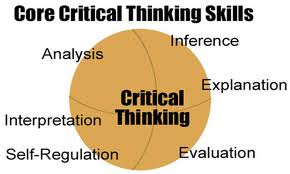Sunday, February 26, 2012
Pre-Determined By Significant Emotional Events By Age Ten
The Emotion Of Reason Continued
Future Time
"Okay,” I said, “here goes. The self, the one that
buys groceries, goes to the movies, enjoys a cold beer—you get the
picture, consists of two components—memories and the capacity for
self-determination. The self is not an `autonomous will,' nor is it a
chameleon like entity that transforms itself anew every time it comes
in contact with some significant other, nor is it merely a product of
the environment. Rather, it is the body's most active component."
"That's it, where's the emotion?" replied MV.
"Be patient. At least, you haven't changed in that department," I
responded. "More specifically, the self may be defined as the locus of
memories embedded in an information gradient, a gradient
resistant to self-determination possibilities. We know this
information gradient in terms of physical, social, and psychological
events—the raw materials out of which memories are woven. Behavior,
most assuredly, is a product of environmental stimuli. But, it is not
totally determined by these stimuli; to the degree that the self
willfully acts (a reflective, evaluative response) it expands the
information gradient. In other words, to the degree that behavior is
based on critical thinking and judgment, a self-determining agent
determines his/her own behavior—the self becomes the determined
determiner of itself."
"Hey, I'm still all ears; but I haven't heard anything about emotion
yet," MV responded. "Where does emotion come in and overpower reason?"
"It's right there in the information gradient, and a good thing, too,
because you're really patient! When the self is considered in this
light, the cold, independent nature of logical and rational thought
loses its independence. Self-determining agents are anchored in the
same information gradient that is `home' to more powerful libidinal
instincts and drives; and, as such, willful acts of self-determination
are never free of emotion, both conscious and unconscious emotion.
Rationality is grounded in this emotion, the emotive content of our
environment. That is why the psychologist, Morris Massey, can say,
`…by age ten, significant emotional events have already pre-determined
who we will be for the rest of our lives.' Early on, significant
emotional events are seminal in forming the emotional base out of
which we will respond throughout life. That is what has to be dealt
with, and that is what prevents new ideas from taking root."
Subscribe to:
Post Comments (Atom)









No comments:
Post a Comment